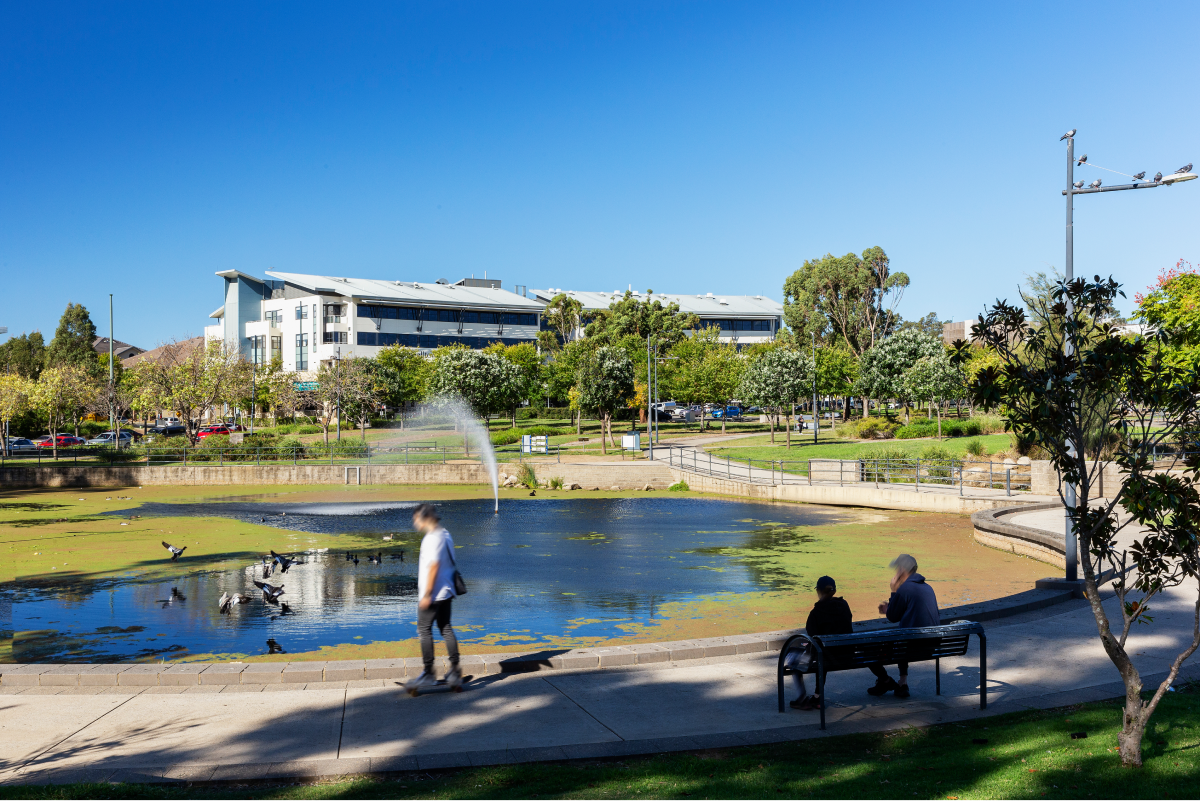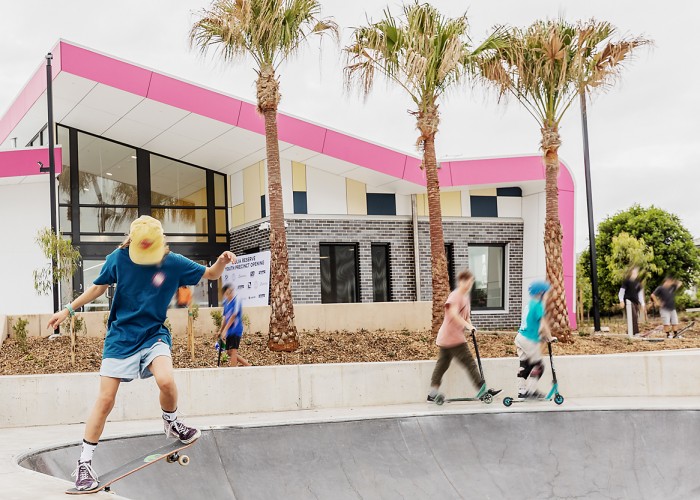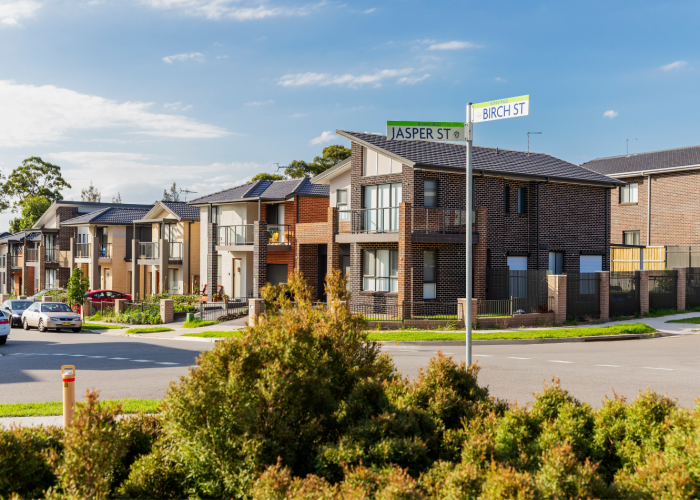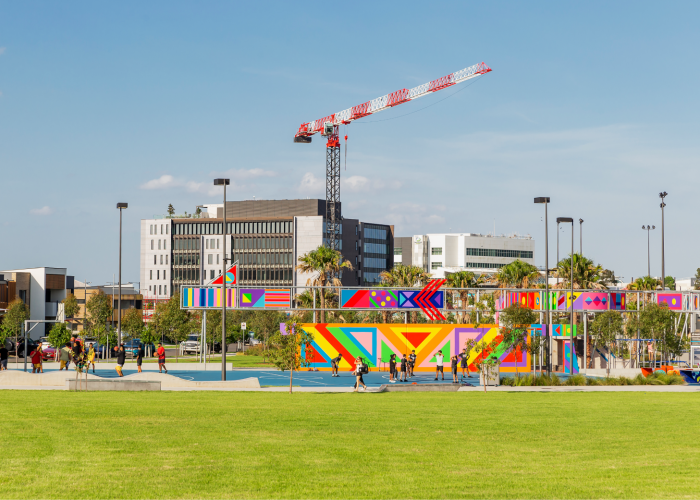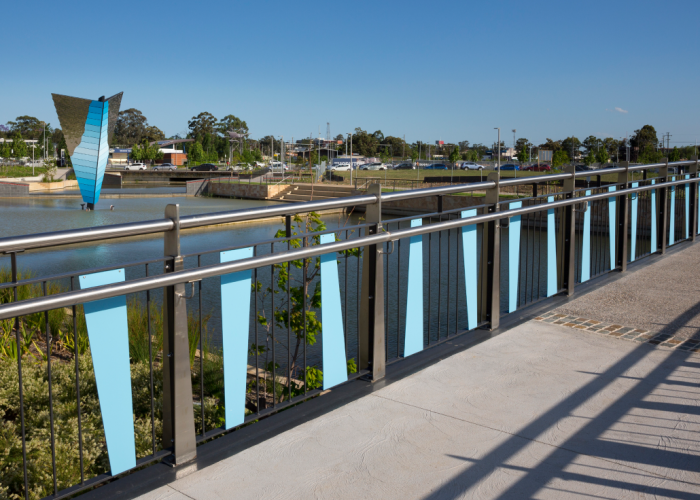Strategic Direction
Partnerships & Leadership


Climate resilience leadership
In our Sustainable Places Strategy Landcom commits to delivering climate resilient places that are low carbon, resource efficient and environmentally sensitive places. This is enabled by a suite of resilience and adaptation targets applicable to all projects.
Informed by leading frameworks and resilience guidance, including the United Nations Sustainable Development Goals, 100 Resilient Cities Resilient Sydney Strategy, Green Building Council of Australia’s Green Star Communities and Infrastructure Sustainability Council of Australia’s Infrastructure Sustainability Rating Tool, Landcom’s approach provides a consistent, comprehensive, and scalable methodology for understanding crucial system interdependencies and building resilience at the community scale.
Preliminary assessments of a site’s exposure to climate risks are completed for all new and prospective projects and informs the decision on whether to approve a project. This includes a site assessment by Landcom sustainability experts and project development team members, to test and validate desktop findings and assumptions. These early investigations inform all prospective project business cases, and largely focus on environmental factors – for example extreme heat or bushfire.
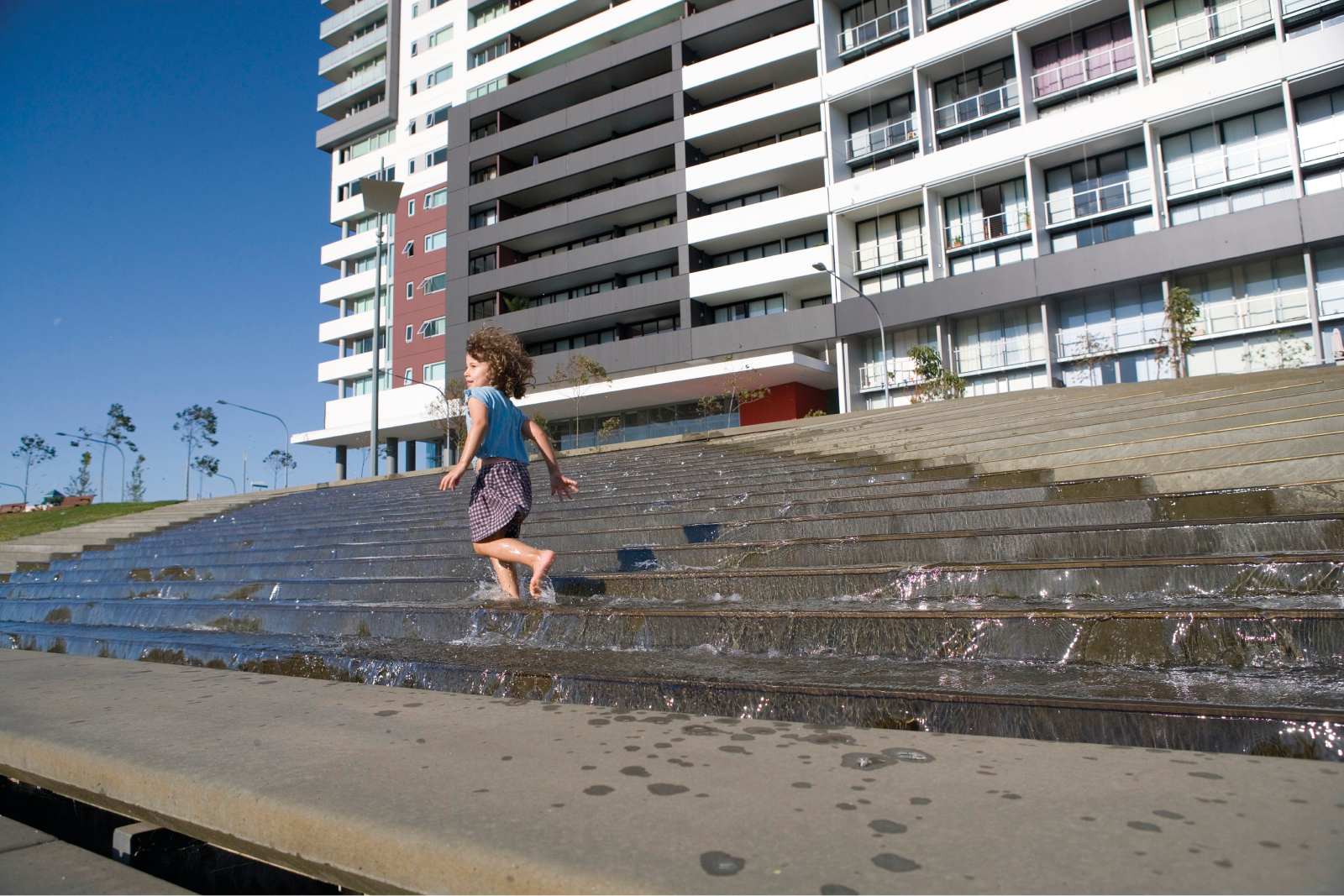
Once a new project is approved for development, opportunities or risks to critical infrastructure (water, power, telecommunications, transport) and emergency services are evaluated. Socio-economic composition, and availability of key amenities and services such as health care, education and employment are also considered. This includes identifying any underlying chronic stresses of a community and assessing the likelihood these could be exacerbated by acute shocks. By considering all factors, Landcom is able to develop a comprehensive view of all interdependencies.
Based on all the findings, a strategic and informed community resilience and adaptation plan is prepared for the project. This lasts from inception to completion of the development and will include a range of mitigation or adaptation initiatives tailored to project needs. A residual risk rating is also applied to each initiative, to monitor positive impacts of reduced climate risks and enhanced resilience.
Landcom continues to track resilience within the community once residents begin to move in, through our Healthy & Inclusive Places Survey. This annual survey seeks resident feedback on their quality of life, with questions specific to community resilience.
